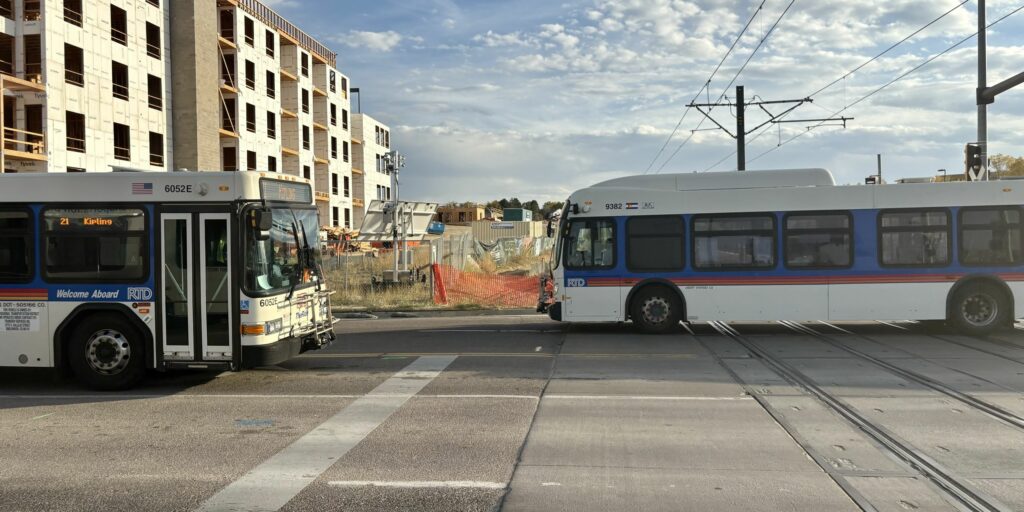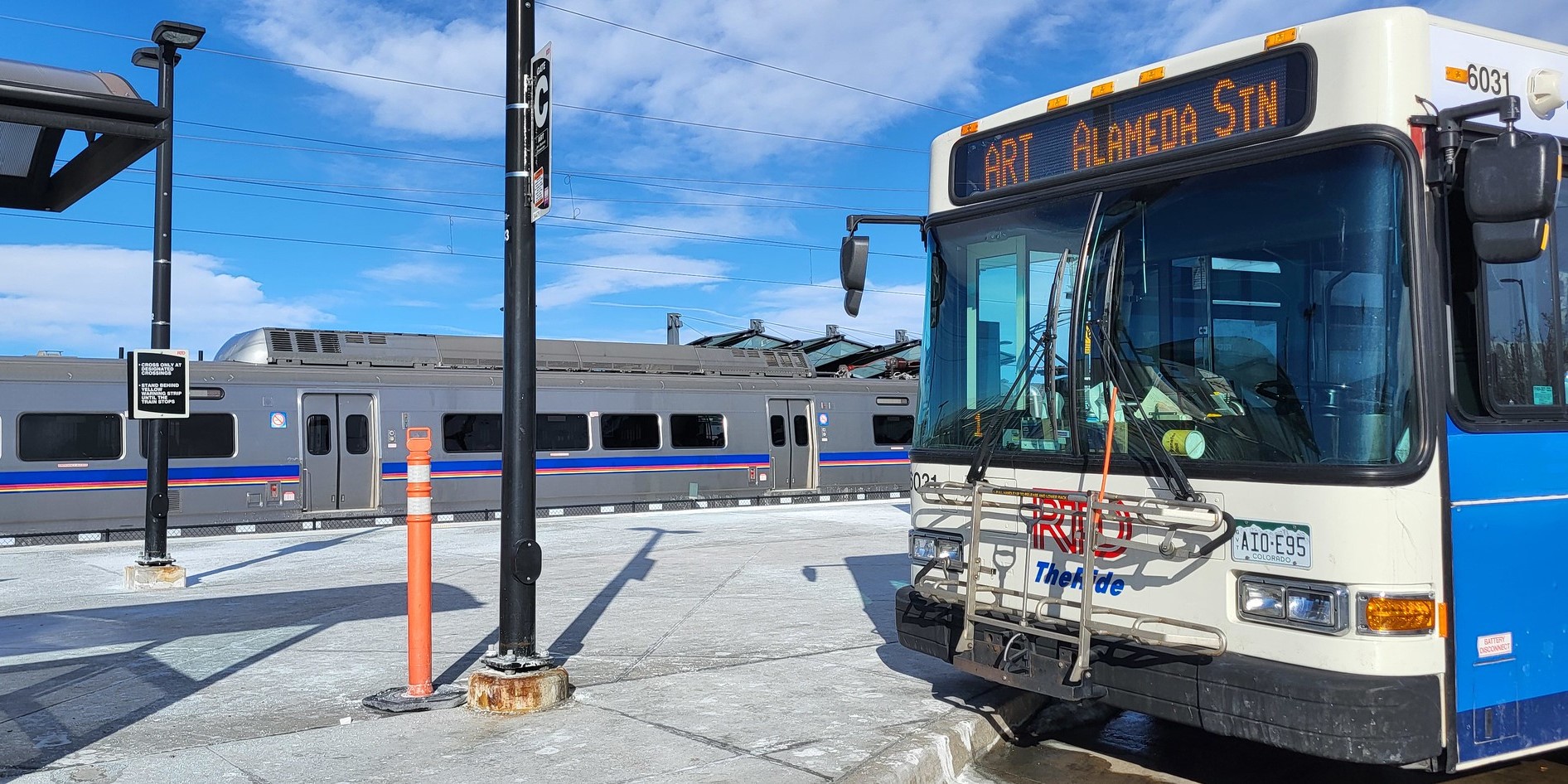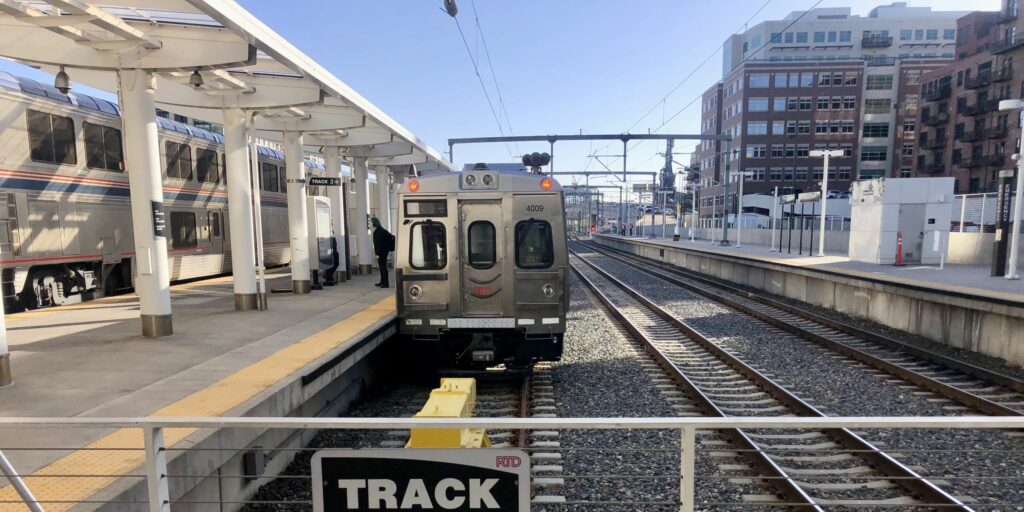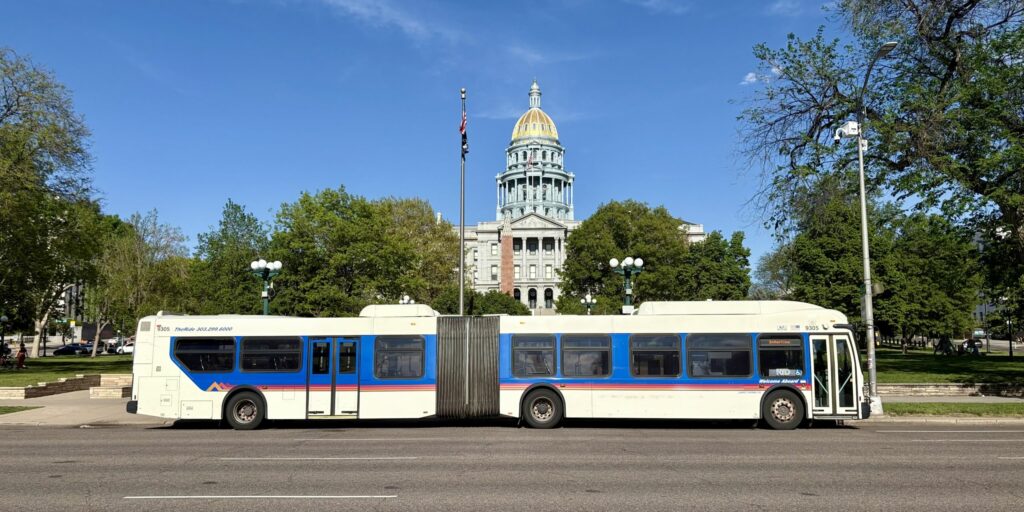GDT > RTD Info > 2024 State Auditor’s Report

In July 2024, the Office of the State Auditor (OSA), following a months long audit, published its report on RTD’s finances from 2022, which is the last year complete data was available. While the agency was found to generally be in good financial health, the audit identified a number of issues related to asset management, the 2024 budget process and the amount of information provided to the Board. The audit also assessed RTD’s progress in implementing recommendations from the 2021 Accountability Committee.
Key Findings
- As of Calendar Year 2022, RTD was in overall good financial standing based on nine indicators of fiscal health, and was operating more cost effectively than many of its peers when looking at a simple cost efficiency measure showing cost per rider.
- From 2021 into 2024, RTD did not report all statutorily required cost efficiency information.
- RTD’s 2024 projections for capital asset renewal and replacement costs did not accurately plan for $153.2 million in projects that the RTD Board approved to be funded in the 2024 budget.
- RTD’s budgets for 2022 through 2024 did not provide adequate, accurate information to the Board, as required by statute, and from 2021 through 2023, RTD did not fully adhere to statutory budget filing requirements.
- From 2022 into 2024, RTD management did not provide consistent, quarterly strategic plan updates to the Board as expected and changed financial success metrics without Board approval.
- In 2023, the RTD Board lacked policies and processes to ensure timely onboarding training for new Board members and ongoing training for tenured members.
- As of March 2024, RTD had not fully implemented 22 of the 43 recommendations made in 2021 by the RTD Accountability Committee.
- In 2022 and 2023, RTD overspent Board appropriations to implement the Ozone Season Transit Grant Program and did not adhere to all State grant reporting requirements.
The report made 24 recommendations, of which RTD agreed with 17, partially agreed with 4 and disagreed with 3.
Financial Health
“Overall, the results of these analyses demonstrate that RTD was in good fiscal health as of Calendar Year 2022”
RTD Fiscal Governance Performance Audit, July 2024
The report starts off by assessing that RTD is in overall good financial standing based on nine indicators of fiscal health, and was operating more cost effectively than many of its peers when looking at a simple cost efficiency measure showing cost per rider. It warns of potential risks to revenue such as reduced fare revenue following the 2022 Fare Study and the consequences of not getting a continued exemption from the TABOR revenue cap.
While those looking for a big financial scandal will be disappointed, GDT applauds the agency for continuing to size its budget to its revenues and avoiding having to issue dire warnings of a “fiscal cliff” that a number of other transit agencies in the U.S. have had to do.
Transit Asset Management Plan
“RTD did not prioritize asset investment decisions in its 2024 budget according to its Transit Asset Management Plan.”
RTD Fiscal Governance Performance Audit, July 2024
The report notes that $153.2m of projects was included in the 2024 Budget but not the Transit Asset Management Plan. The main one here was a line item for a $150 million downtown rail replacement project following a corrective action plan submitted by RTD to the Public Utilities Commission (PUC) related to the deteriorating condition of the rail. The downtown light rail reconstruction project was added at the last minute to a second edition of the 2024 budget causing the Board to ask questions about why it was suddenly included.
This was found to be a violation of Board policy that says asset investment decisions should be prioritized according to its Transit Asset Management Plan.
Asset Management
“RTD lacks a comprehensive inventory of assets and inventory policies to guide its prioritization of asset renewal.”
RTD Fiscal Governance Performance Audit, July 2024
The report is pretty blunt regarding RTD’s asset management efforts, basically saying they are not effective or non-existent. This is the underlying reason for the projects in the section above being suddenly dropped into the budget as a result of PUC enforcement action instead of the correct way, which is by way of a functioning asset management process.
It is extremely disappointing to hear that, despite years of senior management talk and presentations suggesting otherwise, RTD does not have a functioning asset management system.
2022 Budget Information
“RTD management told us that, starting with the 2022 budget, it changed the budget presentation to the Board in response to a request from the Board to make the budget easier to understand.”
RTD Fiscal Governance Performance Audit, July 2024
In 2021, RTD’s budget presented to and approved by the Board included the required 3 years of budget trend data, as well as information on RTD’s estimated starting and ending fund balances. However, the report details that, starting with the 2022 budget, RTD changed the budget presentation to the Board in response to a request from the Board to make the budget easier to understand. The move to a more simplified budget for Board approval and adoption resulted in eliminating some items required by the Local Government Budget Law, including 3 years of trend data and estimated beginning and ending year fund balances.
The fact that RTD staff were simplifying budget information in line with requests from the board to a point that it violated Local Government Budget Law should serve as a wake up call to a number of Directors who appear to be unwilling to do the required reading of documents that is needed to effectively fulfill their oversight role.
Strategic Plan Oversight
“RTD management must provide quarterly performance information to the Board to demonstrate its adherence to the strategic plan.”
RTD Fiscal Governance Performance Audit, July 2024
The report found that RTD management was not consistently providing quarterly performance information to the Board to demonstrate the agency’s adherence to the strategic plan.
The Strategic Plan Performance Metrics
“RTD management revised and acted on revisions to the strategic plan’s quarterly scorecard metrics without seeking Board approval.”
RTD Fiscal Governance Performance Audit, July 2024
The report found that RTD management responsible for the oversight of the strategic plan started revising the quarterly performance scorecard metrics in November 2022 and had been acting on those revised metrics, without first getting Board approval.
This is a serious overstepping of delegated authority by the GM & CEO and the RTD management team. It is absolutely essential that the Board reacts appropriately to make it clear that this is completely unacceptable conduct and should never happen again.
Director On-boarding
“The RTD Board should ensure that newly-elected Board members receive timely training.”
RTD Fiscal Governance Performance Audit, July 2024
The report found that the RTD Board lacked policies and processes to ensure timely onboarding training for new Board members and ongoing training for tenured members. It was found that some elements of the training were only given to new Directors 13 months after they were sworn in.
2021 Accountability Report Recommendations
“As of March 2024, RTD had implemented 21 of the 43 recommendations, or about half, and had taken steps to implement the remaining 22 recommendations, but had not yet completed what it planned to do.”
RTD Fiscal Governance Performance Audit, July 2024
As of March 2024, RTD had not fully implemented 22 of the 43 recommendations made in 2021 by the RTD Accountability Committee. Major outstanding recommendations to be implemented related to operator retention, exploring options to complete the FasTracks program, improving reporting metrics & transparency and improving fixed-route and paratransit service provision.
Conclusion
The news that RTD is in good financial health is to be welcomed and credit is due to the Board, management and the independent audit committee for this good state of affairs.
However, the lack of a functioning asset management system is a clear failure of management to date and needs to be rectified urgently.
The report concurs with GDT’s own observations that the culture of RTD management giving Board members the bare minimum of information must end. Management must be committed to ensuring their Directors are fully supplied with adequate information to carry out their role and Director’s must insist on being given more information should they need it.
Finally the report backs up what many people alongside GDT have been saying for a while now – the agency must be generally more transparent to its Board, employees, stakeholders and the public.


